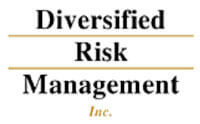In a time of economic strain, the last things any company needs are thieves on the payroll, but statistics show a significant number of employees steal at work. Additionally, the plague of drugs in America’s work force is very real, stripping away a comfortable margin of safety while robbing employers through increased lost time, accidents and higher insurance rates.
It’s rare when thieves slip up and get caught carrying merchandise out of a warehouse, and even rarer when people get stopped in the middle of a drug transaction at work. Sometimes, it just makes good sense to take the fight to the front lines, infiltrate the workplace with a professional informant, and decipher these problems from a viewpoint “up close and personal.”
Undercover investigations (UC) provide intimate information by actual interaction with employees, providing a basis for interviewing malfeasant employees to ultimately solve problems in the workplace, in many cases before they cause huge financial losses due to theft, serious injury, or liability.
When we propose to place one or more Operatives (Undercover Investigators) into a client’s facility, we tailor our investigation depending upon the needs of the case, the company’s budgetary requirements and your attorneys’ directives.
An Operative, working daily inside the Company alongside the other employees, is in a position to develop information regarding alcohol abuse, illegal drugs, cargo theft, dangerous weapons, sexual misconduct, or any other problems encountered during the Operative’s performance of his or her normal work duties.
We believe it’s almost always advisable to retain legal counsel prior to initiation of a UC case, to maintain the important doctrines of Attorney Client Privilege and Attorney Work Product. Our reports are then simultaneously sent to our client and their attorney. Because we’re cognizant of, and sensitive to, labor law considerations, issues of unfair labor practices and entrapment, we can assure our clients that everyone’s rights will be strictly protected throughout our UC investigations. For instance, information pertaining to Bargaining Units and Union organizing or operations will never be a part of our reporting. Rights to privacy will be honored. Only information legal to investigate and report will be provided to clients of this or any other truly competent corporate investigation firm.
These investigations require a high level of planning by your Human Recourses (HR) management or other executives in charge, in concert with the Investigation Case Manager, your lawyer and the UC. When choosing a licensed investigation firm to conduct an undercover investigation, you should insist on the highest of standards; these include the following:
ENTRAPMENT
Simply defined, entrapment is “causing one to commit an act he would not have otherwise committed without enticement.”
While entrapment is not, in itself, illegal, a highly skilled and competent corporate investigation firm would never help provide such a defense for a suspect.
To avoid even the unlikeliest claims of entrapment, an investigator should “qualify” all drug and theft transactions to assure that, if dishonest or criminal employees eventually interact with the Operative in criminal behavior, such as in selling them drugs or stolen Company product, the Operative can clearly show through documented reports that the illegal acts in question had been previously committed by the suspect employees. This would successfully preclude the assertion of an entrapment defense, and would help assure your case is prosecutable.
WHAT DO YOU DO WITH THE INFORMATION?
Your UC usually provides just a fraction of the total information ultimately obtained in a successful UC case; the bulk of evidence is gathered through subsequent interviews when conducted by highly skilled, trained professional interviewers working for your investigation firm.
It’s important for the interviewers to have the benefit of a UC’s information before beginning interviews, because the synergy of both types of information gathering is unparalleled.
Great dignity and respect should always be shown your employees so that nothing would ever be done which could be truthfully characterized as threatening, intimidating or coercive.
When the interviews are completed, you should be provided with a comprehensive summary indicating what was learned during the investigation from at least three sources:
- What the UC discovered about each person,
- What that person admitted to, and
- What that person’s co-workers testified to regarding that person during their own interviews.
Of the three above categories, the most compelling and least challengeable information is that which your employees have provided regarding their own admissions of wrongdoing. This compelling information should be captured in the form of a written statement taken as a declaration under penalty of perjury. Once that’s completed, you should expect your investigation firm to follow up with a tape-recorded meeting, in which all parties are aware of the recording taking place. In this follow up recorded meeting, joined by a management representative, the employee should read the written statement and then testify to the fair and dignified way in which the investigative meeting was conducted. It should conclude with your employee taking the verbal statement, also, as a declaration of fact under the penalty of perjury.
AND IN CONCLUSION:
When all the ingredients come together in the hands of competent professionals, the results are often astounding. Over three decades of this writer’s investigative career, thousands of cases have been opened and solved through UC and interview processes. Millions of dollars worth of stolen product have been recovered; theft rings have been broken up, their leaders fired and criminally prosecuted. Illegal drug trafficking was interrupted before dangerous drugs brought the “grim reaper” to work, and those who “came clean” and sought help were often successfully rehabilitated. Managers engaged in sexual harassment, dispatchers demanding kick-backs, employees carrying guns to work, and security guards sleeping on the job have all been shown the error of their ways.
